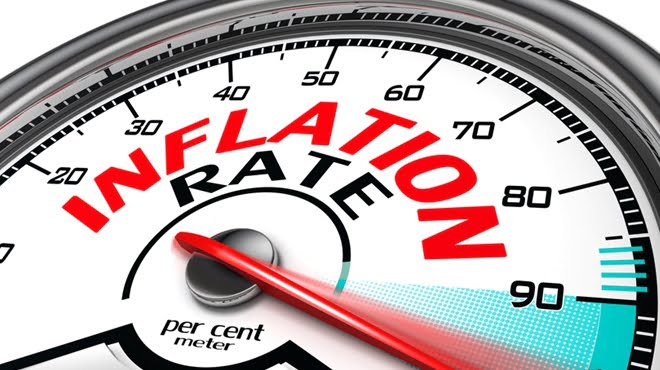Inflation can have a significant impact on your savings and investments. By its very nature, it diminishes the value of your money and reduces your buying power over time. This is why it is critical to add inflation-beating to your investment goals, or you will find yourself in a position where your money is not worth as much as you had hoped for when you need to access it.
Factoring inflationary erosion on your investments is essential regardless of your life stage.
During your working years, the impact of inflation is less noticeable as your income is roughly adjusted by inflationary increases each year.
For those in the ‘accumulating phase’, inflation-beating returns will ensure that your wealth grows in real terms and will have spending power in the future. A simple way to think about this is that if you had R100 today and kept it under your mattress, that same R100 would have lost half its value in 13 years’ time (assuming a constant inflation rate of 5.5% p.a.).
The same principle applies to retirement savings. At retirement, your focus should be on keeping up with inflation when you are drawing an income. You need to carefully consider inflationary increases and the effect it has on your income and retirement nest egg. By the time you reach retirement, it is already too late to start thinking seriously about inflation and there is very little you can do to buffer the effects on your money.
While you may have been less aware of inflation during your working years, your retirement savings should in the very least, keep up with inflation. This approach ensures that your retirement nest egg would be sufficient to sustain your post-retirement lifestyle.
Understanding the impact of inflation on your investments
One of my university professors defined inflation as “too much money chasing too few goods”. For a long time, I just imagined everyone earning more and more money, but being forced to pay more for the same goods. This led to further questions: why is everyone being forced to pay more? Why are the number of goods staying the same? How do I get to this place where everyone is earning more and more? Surely this explanation was too simplistic?
Fast forward a few years and I now think about inflation basically on a daily basis. For the most part I think about how we should construct portfolios that can beat inflation without taking on too much unnecessary risk. But why not just aim for a positive return, why add the complication of beating inflation on top of that?
The answer lies in the reason for investing. We invest as a method of saving and to grow our wealth. The balance between saving and growing wealth may speak to the risk profile of each individual investor. The more savings-focused you are, the more risk averse you may be as an investor. In contrast, the more growth focused you are the more inclined you would be to take on risk. Regardless of where you find yourself on this spectrum, in order to save and grow your wealth, you simply must beat inflation over time.
The impact of inflation on the price of goods
Taking the concept of inflation one step further, let’s consider the value of money and the price of goods. We think of money as rands and cents, but money enables us to buy an assortment of goods. The price of these goods increases over time.
During your working years, it is unlikely that your salary will decrease. Essentially, you will earn more which means that you are more able to afford to buy the goods that you need or want. This increased spending capacity coupled with the increase in the factors of production, forces the price of goods to increase.
In a growing economy there may be scope for an increase in production which could bring more goods to market, however, in a growing economy wages are likely to increase more as well, further fuelling the competition to purchase these goods.
We inevitably get into a cycle of increasing prices of goods. This may sound concerning, but the South African Reserve Bank is geared towards keeping inflation within the target band of 3% – 6%. A manageable amount of inflation within an economy is usually a positive sign of growth and prosperity.
Price increases are almost unavoidable. Therefore, when we invest we ultimately want to be in a position in the future where we can buy more goods then, than what we can by now as a result of the growth of our investment. This growth needs to be more than inflation to ensure that this will be the case.
So not only does my Economics 101 professor’s explanation say what inflation is, it also shows how it comes about. We are in effect forced to pay higher prices, as we negotiate our wages higher and even if the production of goods increases, we will be able to pay more for these goods. After nearly 20 years I’ve realised that his explanation – too much money chasing too few goods – wasn’t too simplistic after all.
- Use the PPS Investments inflation calculator to get an idea of the impact that inflation has on your buying power over time. Follow this link to visit the calculator http://euroland.co.za/ppsinvestments/app/
